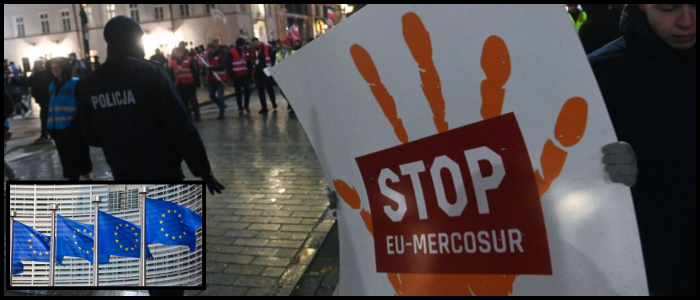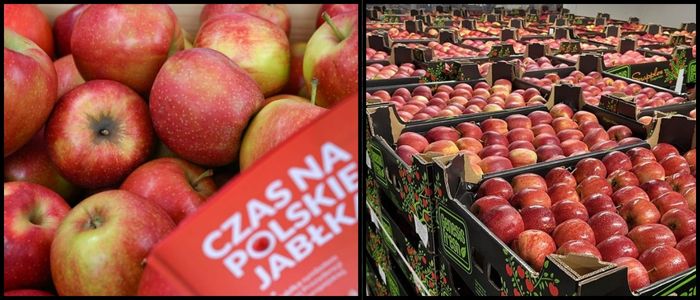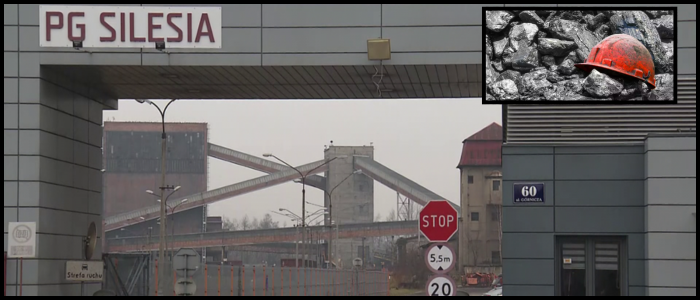President Donald Trump has signed a new order doubling tariffs on steel and aluminum imported from Turkey, raising them to 50% and 20%, respectively. The latest rise, which took effect on Wednesday, is the second huge increase since March. The decision is aimed at protecting the future of the American steel industry, Trump said.
However, it has raised concerns among international metal exporters and local industries that rely on imports. Many business leaders were caught off guard by the hike, instead having anticipated that the increase would be temporary, or at least used as a negotiating tactic.
The UK was exempted and American allies must pay a 25% levy on steel imports as part of ongoing trade talks, but companies elsewhere are expecting huge hits to their bottom lines. Rick Huether, chief executive of the Independent Can Co in Maryland, which imports European steel to produce metal containers, said his operations had been disrupted by uncertainty. He fears that higher prices will send customers seeking cheaper alternatives, such as plastic and paper.
Impact on Trade and Business
The United States is one of the largest steel importers in the world, ranking second only to the European Union. Its steel comes mostly from countries including Canada, Brazil, Mexico, and South Korea. During Trump’s first term, he introduced 25% tariffs on steel and 10% levies on aluminum under national security legislation.
Some of those imports have since been exempted after trade deals or requests from companies. But Trump withdrew those carve-outs in March, saying they undercut the protection measures. In a rally, he said the 50 percent tariff would be “so high that your competitors are going to be forced to buy you pipes. Otherwise, you’re not going to have an industry left.” “We’re bringing back your industry, don’t you worry about it,” he added.
The reaction has been swift. In April, steel imports were 17% behind March. Suppliers are bracing for even more demand destruction as a result of the new tariff. Canada and the European Union already have drawn up lists of retaliatory tariffs in response to the earlier hikes.
In the UK, pressure is mounting on the government to wrap up a trade deal that would protect its exports. It comes after Trade Secretary Jonathan Reynolds held a meeting with US Trade Representative Jamieson Greer to secure the UK’s exemption from the levies. “Even at 25 percent, the U.S. tariffs have already forced the cancellation or suspension of orders, the financial losses of which are not recoverable,” said Gareth Stace, director general of UK Steel, warning “a 50 percent hit to our steel exports would be catastrophic.”
Economic Fallout and Industry Struggle
Some experts have warned that the tariff hikes could backfire. An earlier analysis found that although the Trump tariff raisers helped create about 1,000 steel jobs, the US economy lost around 75,000 jobs in other fields. “One can only assume — and this was part of the intention — that manufacturers are going to absorb less out of their margins in the second round,” Erica York, vice president for federal tax policy at the Tax Foundation, said of the new tariffs.
She noted that higher costs for intermediate inputs such as steel and aluminum make US manufacturing and construction more expensive.
Small businesses are already getting hit. Chad Bartusek, director of supply chain for Drill Rod & Tool Steels in Illinois, said his company imports about 800,000 pounds of steel from Austria a year that he can’t find in the United States. His anticipated tariff bill doubled, increasing from $72,000 to almost $145,000, as a result of the new rate.
He also had to increase prices earlier in the year by as much as 14% and is now noticing more cautious buying among customers. As a consequence, he has cut worker hours. “It’s one punch after the next,” he said, adding that he hoped the situation would stabilize soon. Trump Doubles Down on Metals, Roiling Small Rock’s World
Import Duties Raised to 50%
President Donald Trump has issued an order to double tariffs on imports of steel and aluminum from Turkey to 50% and 20% respectively, over a dispute about Ankara's treatment of a US pastor and a human rights activist. The new raise, which took effect on Wednesday, was the second major hike since March. Trump said that the decision was intended to protect the future of the American steel industry.
However the move has alarmed metal exporters around the world and domestic industries that use imported metals. The hike came as a surprise to many business leaders, who had hoped it would be either temporary or a bargaining tactic.
The UK, which was exempt due to ongoing trade negotiations, has continued to charge the 25% tariff, but companies in other countries are expecting heavy losses. Operations have been upended by uncertainty, said Rick Huether, the chief executive of Independent Can Co in Maryland, whose company imports European steel to make metal containers. He fears higher prices will push customers to cheaper options like plastic and paper.
Impact on Trade and Business
Indeed, the United States is among the largest importers of steel in the world, behind only the European Union. It primarily consumes steel from nations like Canada, Brazil, Mexico, and South Korea. In Trump’s first term, he slapped 25% tariffs on steel and 10% on aluminum, alleging national security laws as justification.
Most of those imports eventually were granted exemptions through trade deals or petitioning companies. But Trump stripped away those exemptions in March, explaining that they diminished the effectiveness of protective measures. He declared at a rally that the 50% tax would be high enough to coerce companies to buy from American producers instead, imagining:
“Nobody’s going to be able to steal your industry” anymore.
The reaction has been swift. Steel imports in April fell 17 percent from March. Suppliers say demand is poised to plummet again in the wake of the new tariff. Canada and the European Union have also readied counter-tariffs in retaliation for the earlier hikes.
In the United Kingdom, the government is racing to secure a trade agreement that would protect its exports. The latest round of tariffs threatens to add billions of pounds to the cost of the British fish and chip trade and in the meantime Government ministers have been working to extract the market from those tariffs. Trade Secretary Jonathan Reynolds this week held talks with US Trade Representative Jamieson Greer in a bid to make sure the UK remains exempt from the latest tariffs. The 25% rate has brought about canceled and delayed orders, not least because of the uncertainty that the market faces, according to UK Steel’s director general, Gareth Stace, while even a 50% rate proposed by the UK would be “catastrophic” for UK steel exporters, 7% of the total, he said.
Damage to the Economy, Industry Shuttering
Experts have warned that increasing tariffs may cause more harm than good. A previous study found that for every job created by Trump’s tariffs, 75 were lost in other industries across the US thanks to his tariffs. A second round of tariffs could cause even bigger losses, said Erica York, vice president of federal tax policy at the Tax Foundation.
“What’s getting more expensive is intermediate inputs like steel and aluminum,” she said, adding that it penalizes manufacturing and construction, making US production more expensive.
Small businesses are already suffering. The company Chad Bartusek works for, Drill Rod & Tool Steels in Illinois, imports about 800,000 pounds of a type of steel from Austria a year that is not available at home. His projected tariff bill jumped to roughly $145,000 from $72,000 thanks to the new rate.
He also had to raise prices by as much as 14% earlier in the year and is now being met with more guarded purchasing by customers. As a result, he has cut worker hours. “It’s a blow after blow,” he said, adding that he hoped the situation would stabilize soon.
PREV NEWS
NEXT NEWS







BY Oskar Malec

BY Oskar Malec

BY Oskar Malec

BY Oskar Malec

BY Oskar Malec
Uwielbiamy pliki cookie — zarówno te jadalne, jak i cyfrowe, które ulepszają Twoje wrażenia z przeglądania. Pomagają nam one udoskonalać funkcjonalność naszej witryny i Twoje ogólne wrażenia. Podstawowe i funkcjonalne pliki cookie są niezbędne do prawidłowego działania witryny i nie można ich wyłączyć. Ponadto używamy plików cookie w celu optymalizacji wydajności („komfort”) i wyświetlania spersonalizowanych reklam („marketing”), na co potrzebujemy Twojej zgody. Kliknij „Zezwól na wszystkie”, aby wyrazić zgodę na przetwarzanie danych. Uwielbiamy pliki cookie — zarówno te jadalne, jak i cyfrowe, które ulepszają Twoje wrażenia z przeglądania. Pomagają nam one udoskonalać funkcjonalność naszej witryny i Twoje ogólne wrażenia z przeglądania. Podstawowe i funkcjonalne pliki cookie są niezbędne do prawidłowego działania witryny i nie można ich wyłączyć. Ponadto używamy plików cookie w celu optymalizacji wydajności („komfort”) i wyświetlania spersonalizowanych reklam („marketing”), na co potrzebujemy Twojej zgody. Kliknij „Zezwól na wszystkie”, aby wyrazić zgodę na przetwarzanie danych.
Twoja zgoda obowiązuje również na mocy art. 49 (1) (a) RODO, co oznacza, że Twoje dane mogą być tymczasowo przetwarzane poza EOG, w tym w USA. W takich przypadkach wysokie europejskie standardy ochrony danych mogą nie być w pełni zagwarantowane, a władze USA mogą uzyskać dostęp do Twoich danych bez skutecznego środka prawnego. Możesz wycofać swoją zgodę w dowolnym momencie.
PrywatnośćWarunki korzystania z serwisu
Możesz zarządzać swoimi preferencjami dotyczącymi plików cookie lub wycofać zgodę w dowolnym momencie za pośrednictwem naszych ustawień plików cookie. Aby uzyskać więcej informacji, zapoznaj się z naszą Polityką prywatności.